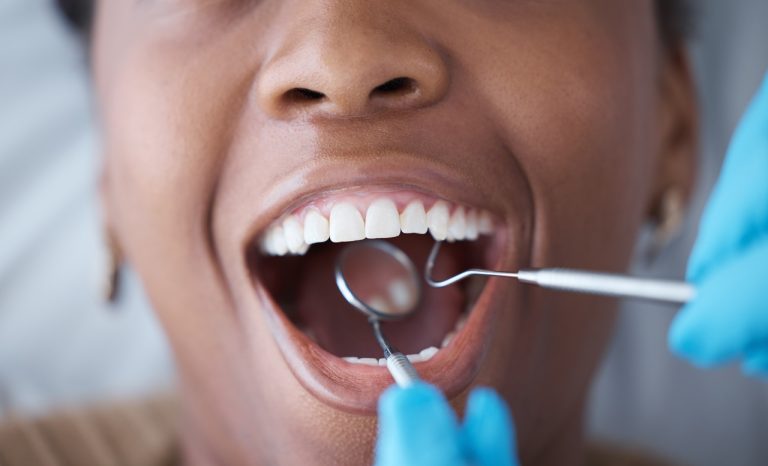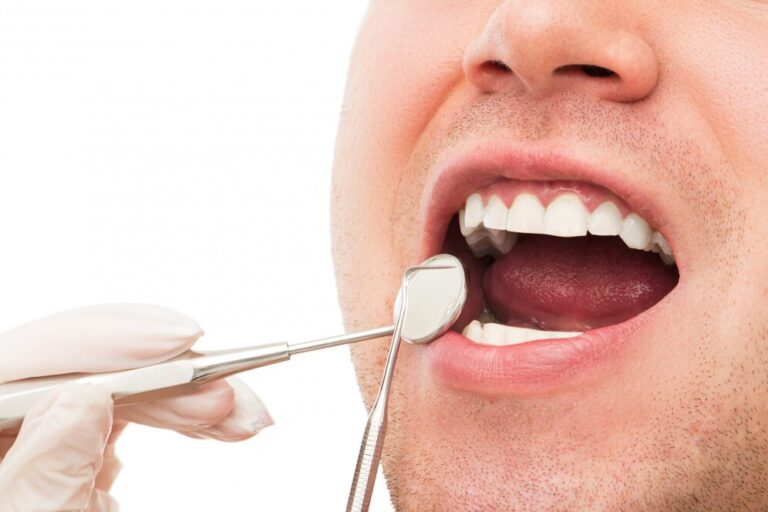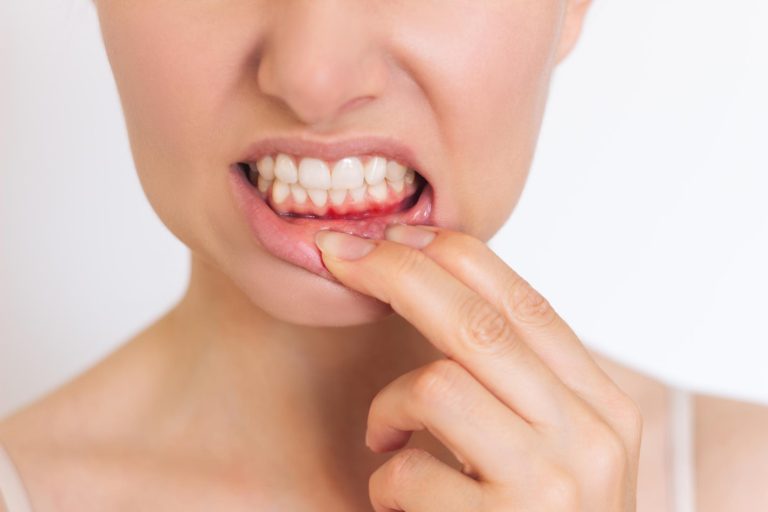Ever bit into an apple only to feel a twinge of pain? Perhaps you’ve noticed your gums looking a bit more red than usual. Maybe you’ve even had the unpleasant experience of a dentist telling you that you need to take better care of your gums. Well, you’re not alone. Gum health is often overlooked when we think about our overall wellness. However, it plays a crucial role in not only our oral health but also our overall well-being.
The good news is that there’s a simple, natural, and delicious way to boost your gum health – nutrition! That’s right, the foods you eat can have a significant impact on the health of your gums. The connection between nutrition and gum health is profound and underappreciated. Certain nutrients can help prevent gum disease, reduce inflammation, and even promote the regeneration of gum tissue.
So, whether you’re battling gum disease, trying to prevent it, or simply looking to improve your overall oral health, this resource is for you. It’s time to take control of your gum health through the foods you eat. Let’s dive in and discover the power of nutrition together.
Unlock the Secrets to Healthy Gums through Nutrition
1. Nutrient-Rich Foods that Support Gum Health
Incorporating nutrient-dense foods into your daily diet can significantly impact the overall health of your gums. Some essential nutrients and their food sources include:
- Vitamin C: This powerful antioxidant protects your gums by promoting collagen production and aiding in wound healing. Enjoy foods rich in vitamin C, such as oranges, strawberries, red bell peppers, and leafy greens like kale and spinach.
- Vitamin D: Essential for calcium absorption, vitamin D promotes strong teeth and helps reduce inflammation. Incorporate vitamin D-rich foods such as salmon, fortified dairy products, or egg yolks, and don’t forget to catch some sunshine to support natural vitamin D synthesis.
- Calcium: A key building block for your teeth, calcium helps strengthen and maintain tooth enamel and support gum health. Consume calcium-rich foods like dairy products, almonds, and dark leafy greens.
- Potassium: This essential mineral helps neutralize acids that can erode tooth enamel and harm gum tissues. Find potassium in bananas, avocados, potatoes, and tomatoes.
- Coenzyme Q10 (CoQ10): Known for its antioxidant properties, CoQ10 supports gum tissue healing and helps fight gingivitis. Include CoQ10-rich foods like organ meats, nuts, seeds, and oily fish in your diet.
2. Meal Planning Strategies for Optimal Gum Health
Following healthy dietary guidelines and planning nutritious meals can have a significant impact on gum health. Consider these tips when planning your daily diet:
- Strive for Balance: Aim to maintain a balanced diet featuring various nutrient-rich foods, such as lean proteins, whole grains, fruits, and vegetables. This balance ensures that your body is equipped with the essential nutrients required for optimal gum health.
- Snacking Smart: Limit your intake of sugary and sticky snacks that may promote bacterial growth. Opt for healthier snacks like nuts, cheese, or raw vegetables that benefit your oral health.
- Stay Hydrated: Drinking plenty of water is essential for overall health, promoting saliva production and helping flush away food debris and bacteria.
- Chew Sugarless Gum: Chewing sugarless gum after meals can stimulate saliva production and help neutralize acids that can damage enamel and gum tissues.
3. Foods and Habits to Avoid or Limit for Gum Health
Certain foods and habits can compromise gum health and exacerbate inflammation. To minimize gum health risks, consider avoiding or limiting the following:
- Sugary Foods and Drinks: Consuming excessive amounts of sugars and starches can encourage bacterial growth and harm gum health. Limit your intake of sugary snacks, soda, and fruit juices, and prioritize nutrient-rich foods and water instead.
- Alcohol: Excessive alcohol consumption can lead to dehydration and dry mouth. Limit your alcohol intake and aim to stay well-hydrated to support gum health.
- Tobacco Products: Smoking or using smokeless tobacco can increase the risk of gum disease and other oral health issues. Quitting tobacco use is essential for promoting healthier gums and overall well-being.
4. Combining Nutritional Strategies with Oral Care Best Practices
Optimizing your diet for gum health should be paired with a consistent oral care routine and regular dental checkups. Adopting these best practices can help maintain optimal gum health:
- Brush Twice Daily: Brush your teeth with fluoride toothpaste twice a day to help remove plaque and bacteria.
- Floss Daily: Flossing between teeth and below the gumline can help prevent gum disease by dislodging food particles, plaque, and bacteria.
- Regular Dental Checkups: Schedule and attend regular dental checkups and cleanings to keep your gums healthy and address any potential issues early.
- Seek Professional Advice: Consult with your dentist and healthcare provider for personalized guidance on improving your diet and oral care routine to promote gum health.
Embrace a Comprehensive Approach to Nutrition and Gum Health
So, next time you sit down for a meal, remember that what’s on your plate doesn’t just satiate your hunger or please your palate—it also has the potential to fortify your gums, brighten your smile, and contribute to your overall well-being.
At Colorado Gum Care, our dedicated dentists in Northglenn, CO, are committed to helping you achieve your optimal oral health goals. Schedule an appointment with us today to discuss your gum health concerns and receive personalized guidance and expert care for a lifetime of healthy gums, teeth, and smiles.







